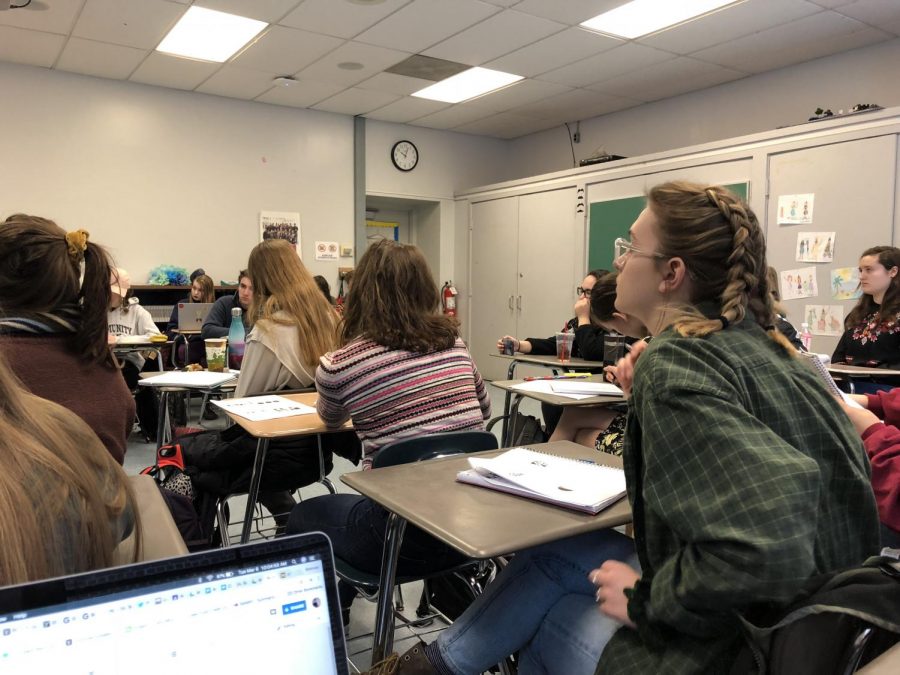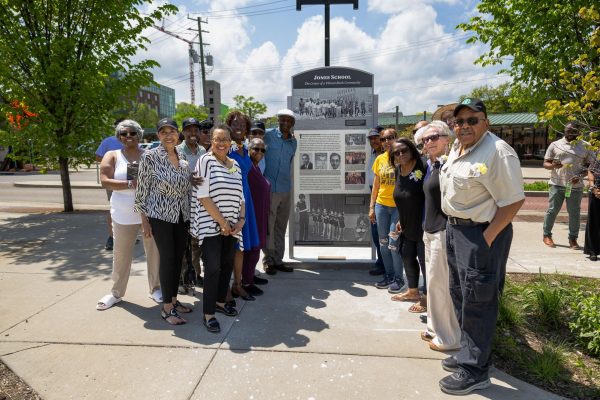Naomi Zikmund-Fisher Presents to Robbie Stapleton’s Public Policy Class
On March 8, 2018, Naomi Zikmund-FIsher visited Community High School. Her husband, Brian Zikmund-Fisher, presented to the class earlier in the semester. Naomi Zikmund-Fisher is the former Ann Arbor Open principal, and currently a clinical social worker. She began her presentation by passing out a paper with guided notes on them. On the top right corner of the paper, there is a graphic that says “I guess things have been kind of stressful at the office. Tomorrow is Bring Your Therapist To Work Day.”
Zikmund-Fisher asked the class how they would define trauma. Many people shared their thoughts, but she ultimately said everyone was right and that trauma is incredibly hard to define. She then gave the DSM-5 definition of trauma, which she doesn’t entirely agree with. Her definition of trauma is “any event where its intensity overwhelms your usual coping skills.”
She then moved on to the four clusters of PTSD symptoms: re-experiencing, avoidance, hyper-alertness, and persistent negative affect, in no particular order. Zikmund-Fisher believes that it is hard for people to get the PTSD diagnosis because everyone’s symptoms are different.
Next she talked about the risk factors for PTSD. Some of these include what you’re used to, how prepared you are, other mental health problems, and more. Not only did she talk about the risk factors and the symptoms, but she touched a little on how PTSD affects the brain. The class discussed the three parts of the brain and how they change with PTSD symptoms.
Finally, Zikmund-Fisher talked about voluntary and involuntary coping mechanisms. Some examples of these include dreaming, avoidance, and drug/alcohol use.










